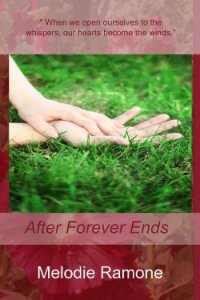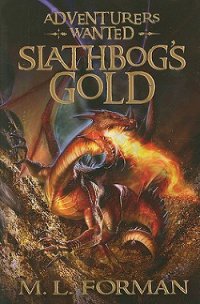White Fang - London Jack (читаемые книги читать онлайн бесплатно полные txt) 📗
But in this matter there was a difference, and many differences. Sierra Vista was a far vaster affair than the tepee of Grey Beaver. There were many persons to be considered. There was Judge Scott, and there was his wife. There were the master's two sisters, Beth and Mary. There was his wife, Alice, and then there were his children, Weedon and Maud, toddlers of four and six. There was no way for anybody to tell him about all these people, and of blood– ties and relationship he knew nothing whatever and never would be capable of knowing. Yet he quickly worked it out that all of them belonged to the master. Then, by observation, whenever opportunity offered, by study of action, speech, and the very intonations of the voice, he slowly learned the intimacy and the degree of favour they enjoyed with the master. And by this ascertained standard, White Fang treated them accordingly. What was of value to the master he valued; what was dear to the master was to be cherished by White Fang and guarded carefully.
Thus it was with the two children. All his life he had disliked children. He hated and feared their hands. The lessons were not tender that he had learned of their tyranny and cruelty in the days of the Indian villages. When Weedon and Maud had first approached him, he growled warningly and looked malignant. A cuff from the master and a sharp word had then compelled him to permit their caresses, though he growled and growled under their tiny hands, and in the growl there was no crooning note. Later, he observed that the boy and girl were of great value in the master's eyes. Then it was that no cuff nor sharp word was necessary before they could pat him.
Yet White Fang was never effusively affectionate. He yielded to the master's children with an ill but honest grace, and endured their fooling as one would endure a painful operation. When he could no longer endure, he would get up and stalk determinedly away from them. But after a time, he grew even to like the children. Still he was not demonstrative. He would not go up to them. On the other hand, instead of walking away at sight of them, he waited for them to come to him. And still later, it was noticed that a pleased light came into his eyes when he saw them approaching, and that he looked after them with an appearance of curious regret when they left him for other amusements.
All this was a matter of development, and took time. Next in his regard, after the children, was Judge Scott. There were two reasons, possibly, for this. First, he was evidently a valuable possession of the master's, and next, he was undemonstrative. White Fang liked to lie at his feet on the wide porch when he read the newspaper, from time to time favouring White Fang with a look or a word-untroublesome tokens that he recognised White Fang's presence and existence. But this was only when the master was not around. When the master appeared, all other beings ceased to exist so far as White Fang was concerned.
White Fang allowed all the members of the family to pet him and make much of him; but he never gave to them what he gave to the master. No caress of theirs could put the love-croon into his throat, and, try as they would, they could never persuade him into snuggling against them. This expression of abandon and surrender, of absolute trust, he reserved for the master alone. In fact, he never regarded the members of the family in any other light than possessions of the love-master.
Also White Fang had early come to differentiate between the family and the servants of the household. The latter were afraid of him, while he merely refrained from attacking them. This because he considered that they were likewise possessions of the master. Between White Fang and them existed a neutrality and no more. They cooked for the master and washed the dishes and did other things just as Matt had done up in the Klondike. They were, in short, appurtenances of the household.
Outside the household there was even more for White Fang to learn. The master's domain was wide and complex, yet it had its metes and bounds. The land itself ceased at the county road. Outside was the common domain of all gods-the roads and streets. Then inside other fences were the particular domains of other gods. A myriad laws governed all these things and determined conduct; yet he did not know the speech of the gods, nor was there any way for him to learn save by experience. He obeyed his natural impulses until they ran him counter to some law. When this had been done a few times, he learned the law and after that observed it.
But most potent in his education was the cuff of the master's hand, the censure of the master's voice. Because of White Fang's very great love, a cuff from the master hurt him far more than any beating Grey Beaver or Beauty Smith had ever given him. They had hurt only the flesh of him; beneath the flesh the spirit had still raged, splendid and invincible. But with the master the cuff was always too light to hurt the flesh. Yet it went deeper. It was an expression of the master's disapproval, and White Fang's spirit wilted under it.
In point of fact, the cuff was rarely administered. The master's voice was sufficient. By it White Fang knew whether he did right or not. By it he trimmed his conduct and adjusted his actions. It was the compass by which he steered and learned to chart the manners of a new land and life.
In the Northland, the only domesticated animal was the dog. All other animals lived in the Wild, and were, when not too formidable, lawful spoil for any dog. All his days White Fang had foraged among the live things for food. It did not enter his head that in the Southland it was otherwise. But this he was to learn early in his residence in Santa Clara Valley. Sauntering around the corner of the house in the early morning, he came upon a chicken that had escaped from the chicken-yard. White Fang's natural impulse was to eat it. A couple of bounds, a flash of teeth and a frightened squawk, and he had scooped in the adventurous fowl. It was farm– bred and fat and tender; and White Fang licked his chops and decided that such fare was good.
Later in the day, he chanced upon another stray chicken near the stables. One of the grooms ran to the rescue. He did not know White Fang's breed, so for weapon he took a light buggy-whip. At the first cut of the whip, White Fang left the chicken for the man. A club might have stopped White Fang, but not a whip. Silently, without flinching, he took a second cut in his forward rush, and as he leaped for the throat the groom cried out, «My God!» and staggered backward. He dropped the whip and shielded his throat with his arms. In consequence, his forearm was ripped open to the bone.
The man was badly frightened. It was not so much White Fang's ferocity as it was his silence that unnerved the groom. Still protecting his throat and face with his torn and bleeding arm, he tried to retreat to the barn. And it would have gone hard with him had not Collie appeared on the scene. As she had saved Dick's life, she now saved the groom's. She rushed upon White Fang in frenzied wrath. She had been right. She had known better than the blundering gods. All her suspicions were justified. Here was the ancient marauder up to his old tricks again.
The groom escaped into the stables, and White Fang backed away before Collie's wicked teeth, or presented his shoulder to them and circled round and round. But Collie did not give over, as was her wont, after a decent interval of chastisement. On the contrary, she grew more excited and angry every moment, until, in the end, White Fang flung dignity to the winds and frankly fled away from her across the fields.
«He'll learn to leave chickens alone,» the master said. «But I can't give him the lesson until I catch him in the act.»
Two nights later came the act, but on a more generous scale than the master had anticipated. White Fang had observed closely the chicken-yards and the habits of the chickens. In the night-time, after they had gone to roost, he climbed to the top of a pile of newly hauled lumber. From there he gained the roof of a chicken– house, passed over the ridgepole and dropped to the ground inside. A moment later he was inside the house, and the slaughter began.



